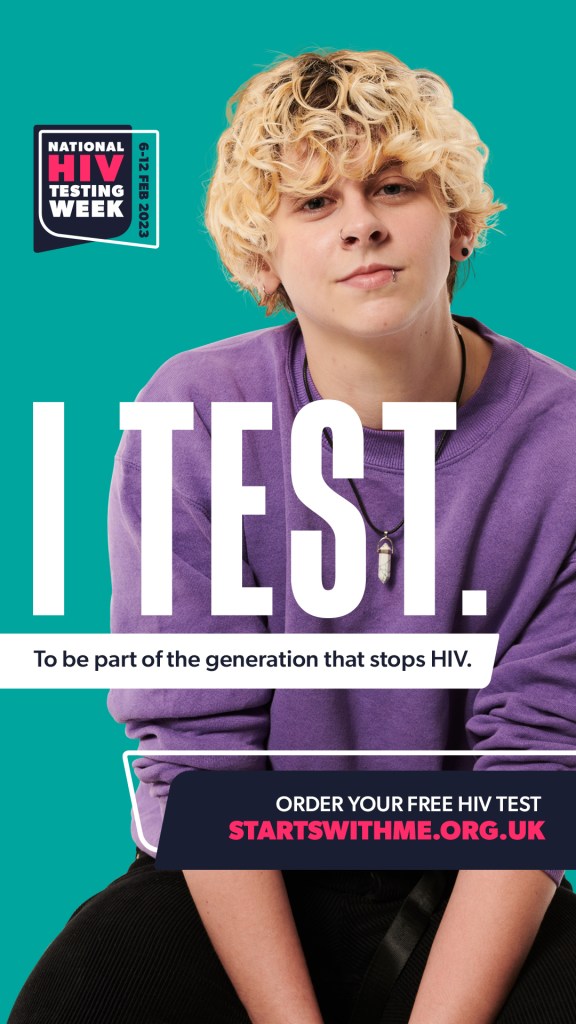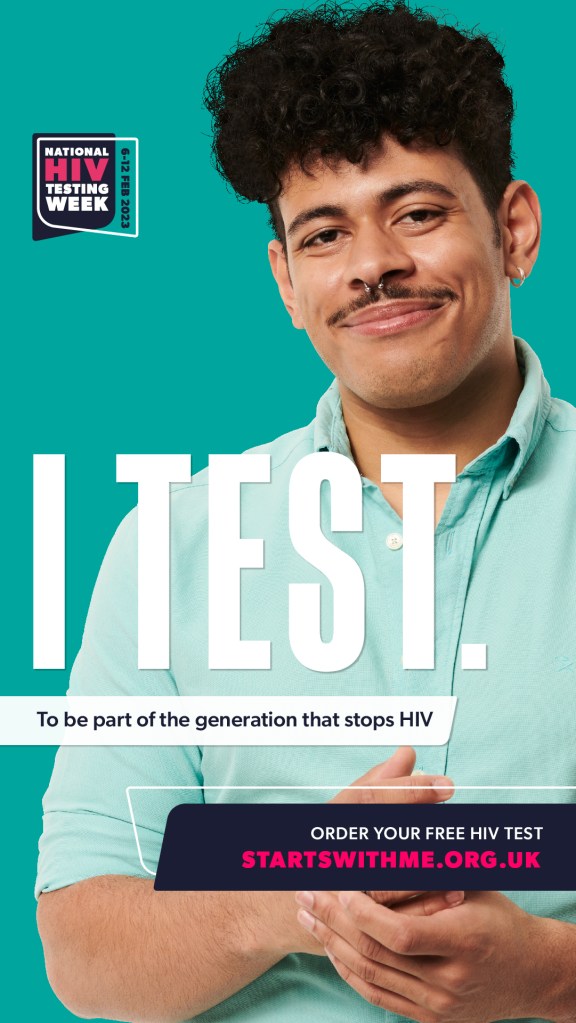Why everyone, without exception, should know their HIV status

Five people share why they test regularly for HIV. (PinkNews)
There are around 4,400 people in England living with undiagnosed HIV – and yet, testing rates are in decline.
The latest data from the UK Health Security Agency (UKHSA) shows that HIV testing is still 20 per cent lower than it was before the COVID-19 pandemic hit.
While gay and bisexual men are testing more than they were before the pandemic, rates have fallen considerably among straight men and women.
HIV Testing Week, marked 6-12 February, aims to change that by raising awareness of why regular resting is so important.
Singer-songwriter Noah Adams, known by his stage name NOAHFINNCE, is one of the Terrence Higgins Trust’s ambassadors for HIV Testing Week – he got involved to “help show that HIV testing isn’t something to fear or be embarrassed about”.

“When I had my first HIV test at 19 I was really nervous for no good reason,” he tells PinkNews.
But as he found, “it was quick, easy and painless”.
“The fear around HIV stops many of us from testing but from personal experience, I can tell you it’s better to know your status,” Noah adds.
“Putting off getting tested only makes anxieties worse.”
Podcast host Corry Will thinks the TV and films of his youth have a lot to answer for when it comes to HIV stigma.

“HIV was depicted by TV and film as something you should be incredibly scared of – but this just isn’t the reality of it today,” he says.
Getting a test is easy – it can even be done at home, through self-testing kits.
It’s something we shouldn’t take for granted, as Corry explains: “For many years, access to HIV testing wasn’t straightforward. During the early days of the epidemic, people couldn’t know their status for sure. Now, we can do an HIV test in the comfort of our own home and get a result in just 15 minutes.”
The Terrence Higgins Trust recommends that everyone who is sexually active tests for HIV and other STIs at least once a year. It doesn’t matter if you’ve had just one regular partner in that time – testing is the only way you can be certain of your status.
Queer men, as well as trans people who sleep with queer men, should be tested every three months if having sex without condoms or with new or casual partners. The Terrence Higgins Trust also says Black African men and women having sex without condoms or with new or casual partners should also test regularly.
Those who test positive for HIV can still live long, healthy lives thanks to advances in treatment.
The sooner someone with HIV starts treatment, the better it is for their health. Effective treatment reduces the amount of HIV in a person’s blood, or their viral load, down to a level where the virus cannot be passed on. This is known as being undetectable. Undetectable = untransmittable.

Rebecca Tallon de Havilland was diagnosed with HIV in 1987 – doctors detected the virus when she went in to undergo gender-affirming surgery.
At that time, Rebecca was in her late 20s, and the outlook was radically different to what it is today. The first anti-retroviral drug was introduced on the NHS that same year, but it wasn’t until 1996 that treatments became available that saw outcomes improve significantly.
Today, Rebecca is thriving and works tirelessly to raise awareness about HIV and trans rights. She wants people to test regularly “just to have control over your own health and wellbeing”, she says.
“And for those who have not tested regularly, or not at all, I feel it’s your responsibility to yourself first and foremost.

Dean O’Reilly, a gay man who works in diversity and inclusion, says that for him, the trick is to make testing part of your usual routine.
“Testing regularly takes the fear out of HIV for me… When testing becomes routine, things don’t seem so big and scary. It’s just part of my sexual health practice.”
He knows there are many reasons somebody might never have taken a HIV test.
“But the thing that does most damage is when we live in the dark, and don’t access the support we need,” he adds. “Testing sheds the light that we need.”
“HIV is a virus that doesn’t discriminate. There are people that have only had one sexual partner and have contracted HIV. There are people that have had hundreds of sexual partners and have never been exposed to HIV.
“Our control over our sexual health is rooted in our risk mitigation – and this starts with testing.”

Tomás Heneghan, a blood donation activist, points out that HIV is highly treatable. It’s better to be in the know and get on treatment as soon as possible to stop yourself getting sick.
“That’s what routine testing achieves. It’s also the right thing to do by your sexual partners, so that you know going into those situations that you have been responsible and taken care of your health.”
You can find out more about free HIV testing in the UK here.

